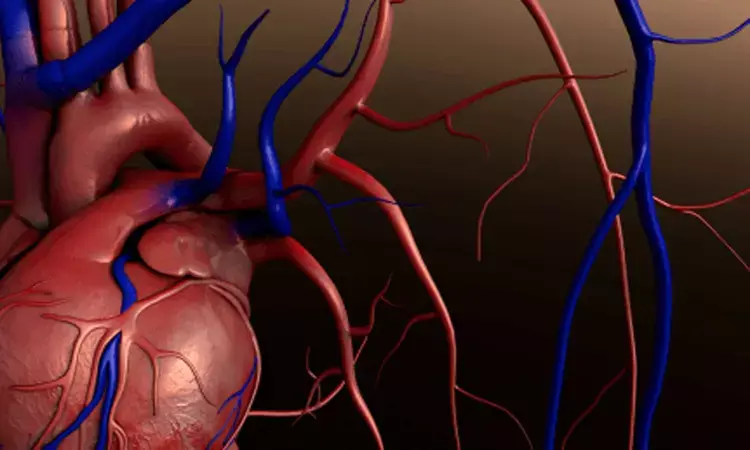- Home
- Medical news & Guidelines
- Anesthesiology
- Cardiology and CTVS
- Critical Care
- Dentistry
- Dermatology
- Diabetes and Endocrinology
- ENT
- Gastroenterology
- Medicine
- Nephrology
- Neurology
- Obstretics-Gynaecology
- Oncology
- Ophthalmology
- Orthopaedics
- Pediatrics-Neonatology
- Psychiatry
- Pulmonology
- Radiology
- Surgery
- Urology
- Laboratory Medicine
- Diet
- Nursing
- Paramedical
- Physiotherapy
- Health news
- Fact Check
- Bone Health Fact Check
- Brain Health Fact Check
- Cancer Related Fact Check
- Child Care Fact Check
- Dental and oral health fact check
- Diabetes and metabolic health fact check
- Diet and Nutrition Fact Check
- Eye and ENT Care Fact Check
- Fitness fact check
- Gut health fact check
- Heart health fact check
- Kidney health fact check
- Medical education fact check
- Men's health fact check
- Respiratory fact check
- Skin and hair care fact check
- Vaccine and Immunization fact check
- Women's health fact check
- AYUSH
- State News
- Andaman and Nicobar Islands
- Andhra Pradesh
- Arunachal Pradesh
- Assam
- Bihar
- Chandigarh
- Chattisgarh
- Dadra and Nagar Haveli
- Daman and Diu
- Delhi
- Goa
- Gujarat
- Haryana
- Himachal Pradesh
- Jammu & Kashmir
- Jharkhand
- Karnataka
- Kerala
- Ladakh
- Lakshadweep
- Madhya Pradesh
- Maharashtra
- Manipur
- Meghalaya
- Mizoram
- Nagaland
- Odisha
- Puducherry
- Punjab
- Rajasthan
- Sikkim
- Tamil Nadu
- Telangana
- Tripura
- Uttar Pradesh
- Uttrakhand
- West Bengal
- Medical Education
- Industry
Culprit-vessel PCI better than multivessel PCI in MI with cardiogenic shock: JAMA

New Haven, Conn. -- Less is sometimes more when treating heart patients who go into shock after a heart attack.
Researchers at Yale and Beth Israel Deaconess Medical Center have found that patients with acute myocardial infarction (AMI) and cardiogenic shock increasingly undergo multivessel PCI and tend to have poorer outcomes than patients who undergo culprit-vessel PCI.
The new study appears in the journal JAMA Internal Medicine.
Cardiogenic shock after acute myocardial infarction (AMI) is associated with high mortality, particularly among patients with multivessel coronary artery disease. About 70% to 80% of patients with ischemic cardiogenic shock have multivessel coronary artery disease,and optimal management of nonculprit lesions has been unclear.
A new study found that more than 30 percent of hospital patients who have a heart attack complicated by low blood pressure undergo an aggressive treatment in which coronary stents are placed in cardiac blood vessels showing any restriction of blood flow to the heart. This is happening despite the existence of a less aggressive approach, called a "culprit-only" strategy, that places stents only in the blocked blood vessels that caused the heart attack.
The study, looked at patients undergoing either of the two procedures at hospitals in the United States from 2009 to 2018. The study's aim was to evaluate patterns in the use of the aggressive, multivessel procedure.
In 2017, an unrelated study found that the more aggressive procedure may lead to a higher death rate than the more conservative treatment. But until now, no research has examined patterns in the use of the two treatments such as relative frequency and its variation among hospitals.
"Our work emphasizes the need for optimization of care practices for a group of patients who experience really bad outcomes," said Dr. Rohan Khera, an assistant professor of cardiovascular medicine at Yale and first author of the study. "In this case, less is more."
Overall, more than one-third of all heart attack patients who go into shock die during their initial hospital presentation. About half of them die within one year. By contrast, the mortality rate for heart attack patients who do not go into shock is less than 5%.
Despite concerns about the aggressive stenting of multiple blood vessels raised in the 2017 research, Khera said, his team found no early signals that its revelations have affected the proportion of patients undergoing aggressive versus more conservative stenting approaches.
But, he said, the team found wide variation among hospitals as to the approach they use -- and that "those hospitals using multi-vessel treatments more frequently had worse patient outcomes."
For further reference log on to:
Revascularization Practices and Outcomes in Patients With Multivessel Coronary Artery Disease Who Presented With Acute Myocardial Infarction and Cardiogenic Shock in the US, 2009-2018
Dr Kamal Kant Kohli-MBBS, DTCD- a chest specialist with more than 30 years of practice and a flair for writing clinical articles, Dr Kamal Kant Kohli joined Medical Dialogues as a Chief Editor of Medical News. Besides writing articles, as an editor, he proofreads and verifies all the medical content published on Medical Dialogues including those coming from journals, studies,medical conferences,guidelines etc. Email: drkohli@medicaldialogues.in. Contact no. 011-43720751


